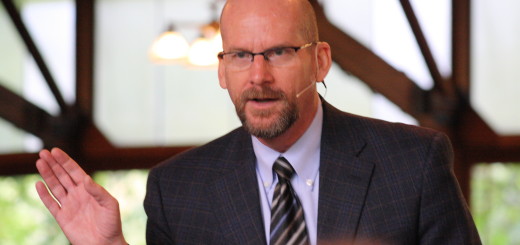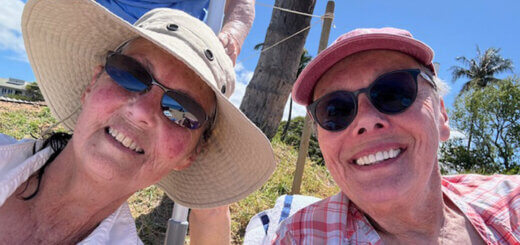Xiaorong enjoys seeing the impact of her work
A desire to see more immediate results from her efforts led Xiaorong Ou, Ph.D., to make a career switch. Seven years ago, she moved from neuroscience research to become a Chinese Outreach Specialist for the Alzheimer’s Association.
An interest in neuroscience
Xiaorong graduated from the University of Southern California with a Ph.D. in neurobiology. Her research focused on how the nervous system changes with age. She completed postdoctoral research and then worked at Genentech, focusing on signal transduction pathways in the brain related to Parkinson’s disease.
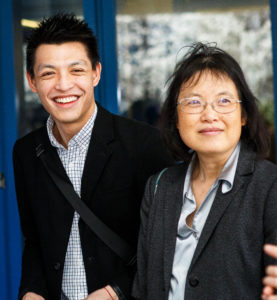
Later Xiaorong worked as a research scientist, studying animal models of Alzheimer’s disease. She also volunteered at the Stanford/Veteran’s Administration Department of Neurology and the Kaiser Permanente Memory Clinic.
Seeing results faster
Working on medical research can be challenging. It usually takes many years, sometimes decades, to find out if the research could lead to a new therapy. While she enjoyed working on research, Xiaorong wanted to find a way to see the effects of her work more quickly.
“It was always my interest to do something where I could help people,” shared Xiaorong. “Working for the Alzheimer’s Association allows me to help caregivers and see the results more quickly.”
In 2012, Xiaorong joined the Alzheimer’s Association as a Chinese Outreach Specialist. In this role, she works to support those in the Chinese community who are impacted by Alzheimer’s and other cognitive impairments.
Outreach, education and support
Through outreach in the community, Xiaorong lets people know about the programs and services offered by the Alzheimer’s Association. On Easter Sunday, Xiaorong attended a large pancake breakfast, held in Oakland’s Chinatown. At this event, she was able to talk to many people about brain health, dementia and support services.
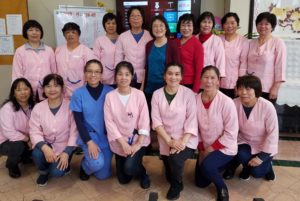
Xiaorong helps raise the awareness of Alzheimer’s disease and promote brain health through television and radio programs, community education, and caregiver trainings. She conducts sessions in Mandarin, Cantonese and English. Some of the topics include the warning signs of Alzheimer’s; understanding Alzheimer’s and dementia; and caregiving strategies.
The Chinese Learning Circle is a monthly group for caregivers of people living with Alzheimer’s or other dementias. The group alternates between having a speaker provide education on a topic and making space for group members to talk with each other. Xiaorong selects the presenters based on issues brought up by the caregivers. She also conducts care consultations with individuals and families, to provide one-on-one education and support.
Edie Yau, our Director of Diversity and Inclusion, highlighted the accomplishments of Xiaorong in planning our annual Chinese Forum in San Francisco. “Because of Xiaorong, the Alzheimer’s Association is able to offer a bilingual education forum that reaches 200 people annually,” Edie shared.
“Multi-generational families are able to receive support in both Cantonese and English. Xiaorong works tirelessly to reduce barriers such as language and stigma to engage the Chinese community.” She has has significantly raised awareness of Alzheimer’s disease and related dementias in San Francisco, where close to one-third of the population is Chinese.
Barriers to getting support
In her experience, Xiaorong finds that stigma and/or denial often prevent people from getting an early diagnosis and reaching out to the Alzheimer’s Association. “A lot of people who contact us are caring for a loved one in the middle stage of the disease,” said Xiaorong, “and are encountering difficulties in providing care.”
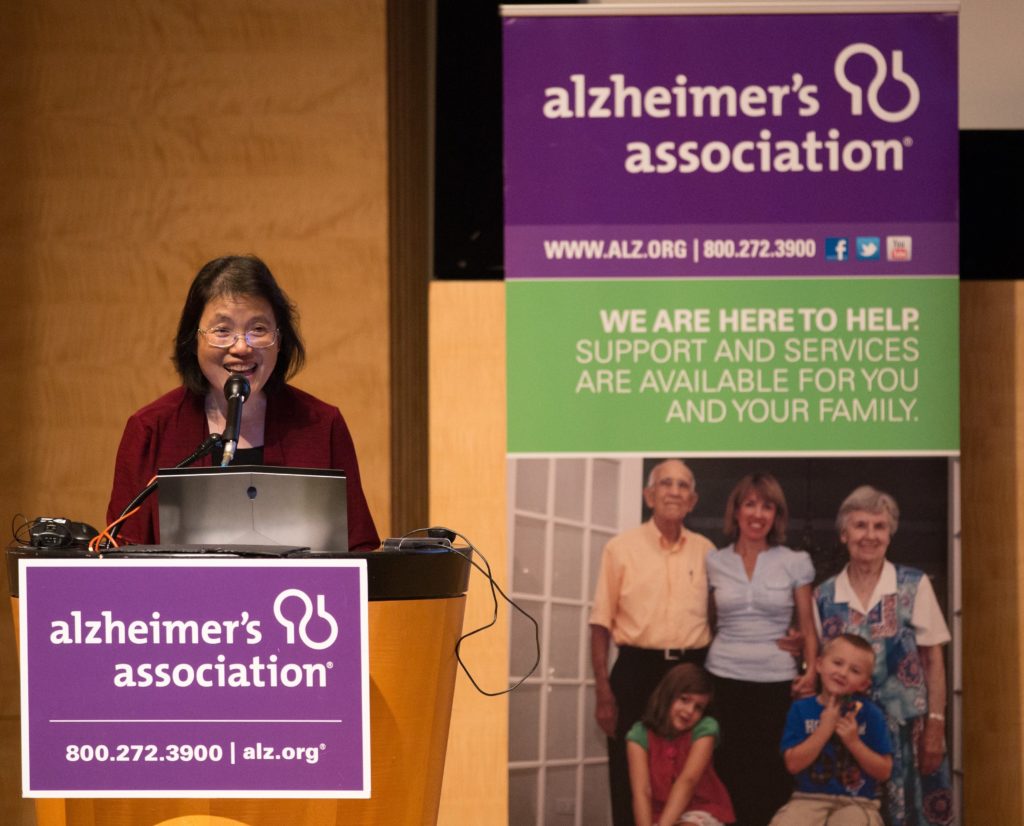
In talking with people who are caring for a spouse, Xiaorong has noticed that many are reluctant to reach out to family for support. Although they have children, they tell Xiaorong that they don’t want to bother them because their children have their own jobs and families.
“The whole family should be involved in providing care,” Xiaorong encourages the caregivers. Someone who can’t provide in person care may be able to help manage finances or provide some other type of support.
Growing in the job
Xiaorong reflected on Bonnie, one of her former coworkers who is very outgoing. Xiaorong admired how Bonnie reached a lot of people through her presentations and by connecting members of her church with the Alzheimer’s Association.
As a shy person, Xiaorong has learned to become more outgoing in her outreach role. She has been able to do this with the support of her coworkers and because of the positive feedback she gets from program participants.
Caregiver tips
Here are a few of the tips that Xiaorong often shares with people living with Alzheimer’s and their care partners:
- It’s okay to talk about Alzheimer’s. If you don’t tell family and friends what is happening, nobody can help you.
- Planning ahead is very important. At some point, the person living with dementia won’t be able to care for themselves. Take steps to prepare for the future.
- Understand that people living with Alzheimer’s do things because they have the disease. They are not trying to make you angry. Try not to take it personally. Be realistic about what the person living with dementia is still able to do for themselves. It can help to change your attitude, instead of expecting the person to behave in a certain way.
- Attend education and support programs or call the Helpline. The more you learn, the better you can do in your caregiving role.
- If you are the primary caregiver, suggest that other family members attend education programs, so that they can learn what you are going through and get ideas on how they can help.
Witnessing the impact
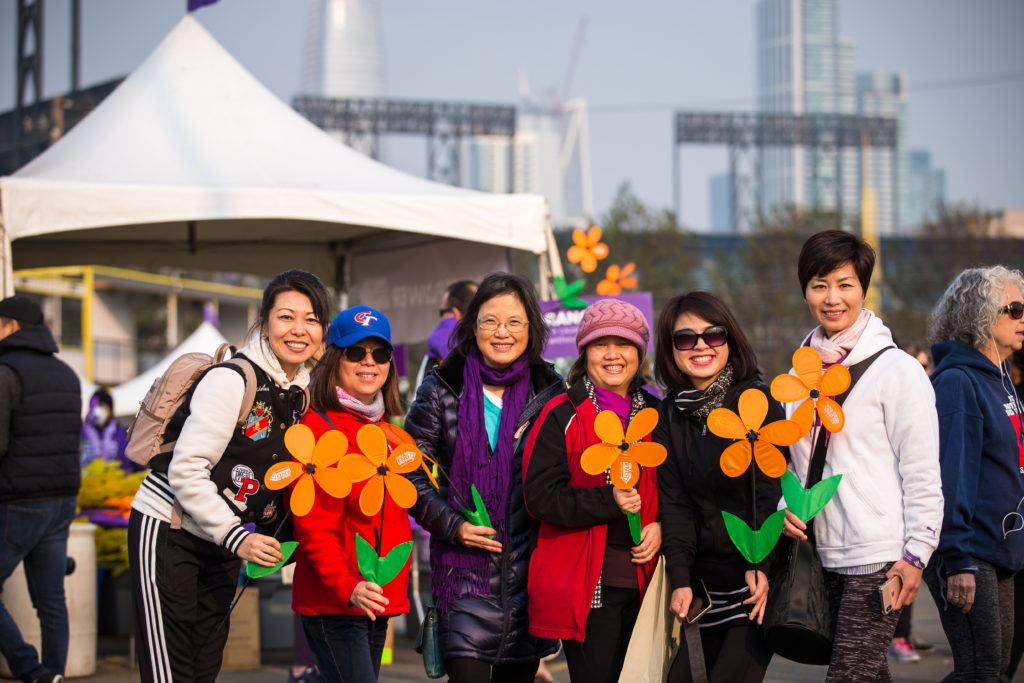
In order to reach caregivers in the community, Xiaorong often works on evenings or weekends. Her son, now 12 years old, has seen many Alzheimer’s presentations and attended outreach events with his mother. When her daughter was living at home, she volunteered at the Chinese Forum.
While Xiaorong acknowledges the challenges of the work, she appreciates the benefits. “When people tell me that our trainings made a difference, or that we told them about a service that helped them,” Xiaorong shared, “that makes it all worthwhile.”
Learn More:





